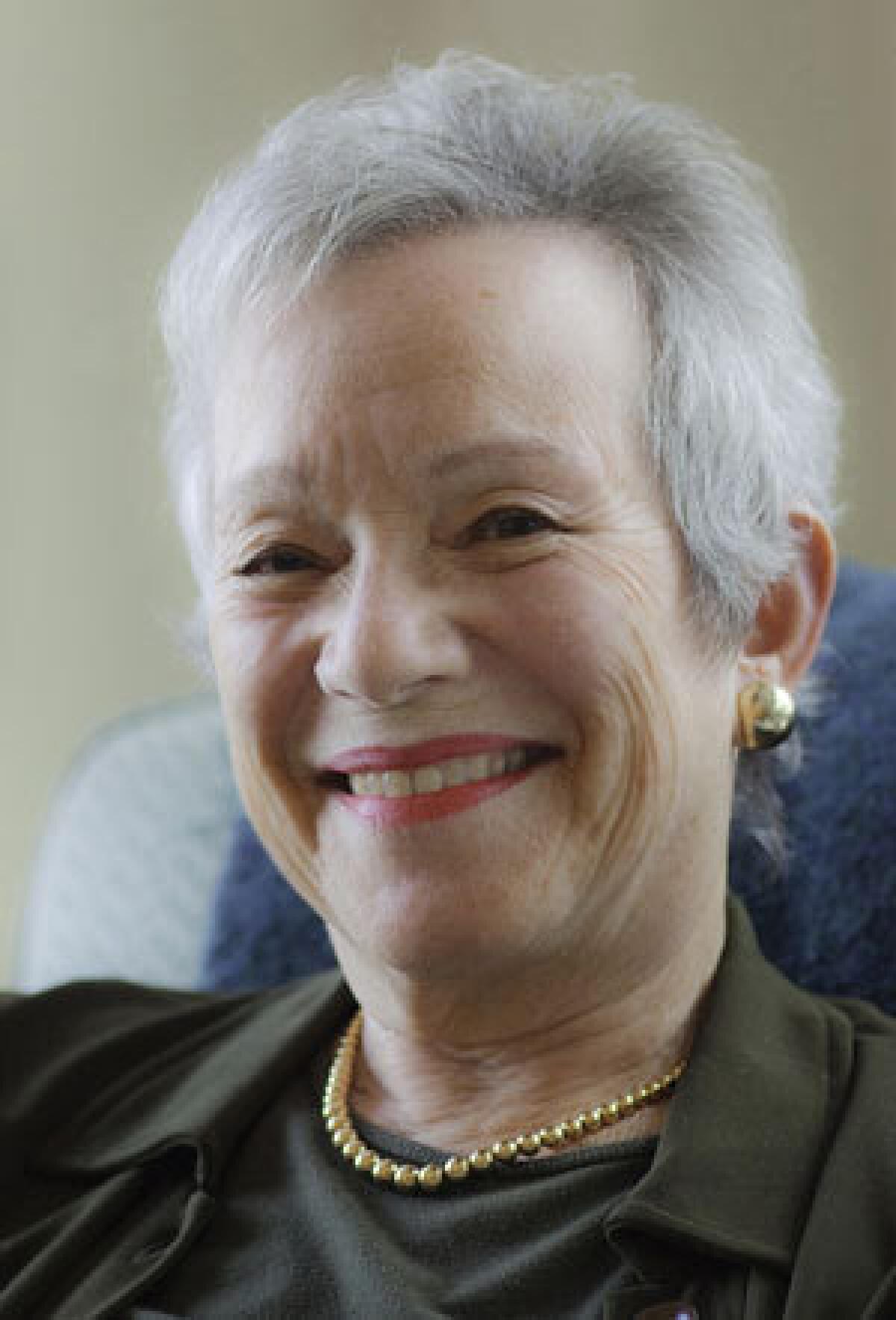Edith Pearlman wins Ribalow Prize

- Share via
In a ceremony Wednesday afternoon at Hadassah House in Manhattan, Edith Pearlman will receive the 2012 Harold U. Ribalow Prize.
The award, given annually by Hadassah magazine, honors an outstanding book of Jewish fiction. Previous winners include Nathan Englander, Francine Prose, Louise Begley and Jonathan Safran Foer. Pearlman is being honored for “Binocular Vision: New & Selected Stories,” which came out in 2011 and spans the arc of her 40-year career.
“Binocular Vision” is -- and I don’t use this word lightly -- a masterpiece, a suite of stories that are astonishing in their range and depth of feeling, their recognition of all the ways we try (and fail) to connect.
Gathering 23 pieces from her three previous collections, as well as 11 new works, it has been nothing short of a sensation: winner of the PEN/Malamud and National Book Critics Circle awards, and a finalist for the National Book Award and the Los Angeles Times Book Prize.
Despite having published widely in literary journals, Pearlman was a relative unknown when “Binocular Vision” was published; it appeared as the first release from a new imprint, North Carolina’s Lookout Books. Yet Pearlman’s piercing sense of social dynamics, her understanding of the things that are said and the things that are never said, have earned her comparisons to short-story masters such as John Updike and Alice Munro.
These analogies, of course, are equally apt and irrelevant; Pearlman writes like no one but herself. Throughout her stories, she avoids easy answers, easy revelations, preferring to leave her characters in the kind of muddled middle territory that we recognize as life.
Time, love, loss, longing -- all of them motivate her characters, and yet all of them remain conditional in a certain fundamental sense. “I would be wise to distrust my memory,” observes one of her narrators, an adult woman looking back to her teenage years, when her parents hosted a weekly poker game under the guise of Torah study, and the rabbi may or may not have had a thing for her mom.
This is not the stuff of epic drama; there’s a reason these are short stories, after all. And yet, in their small moments, recognizable to every one of us, Pearlman invests her work with a sense of the inevitable, with the dignity and the despair of the day-to-day.
ALSO:
Dick Cheney’s heart to get its own memoir
“The Particle at the End of the Universe” gets real
David Ulin and Carolyn Kelogg discuss literary adaptations
More to Read
Sign up for our Book Club newsletter
Get the latest news, events and more from the Los Angeles Times Book Club, and help us get L.A. reading and talking.
You may occasionally receive promotional content from the Los Angeles Times.











